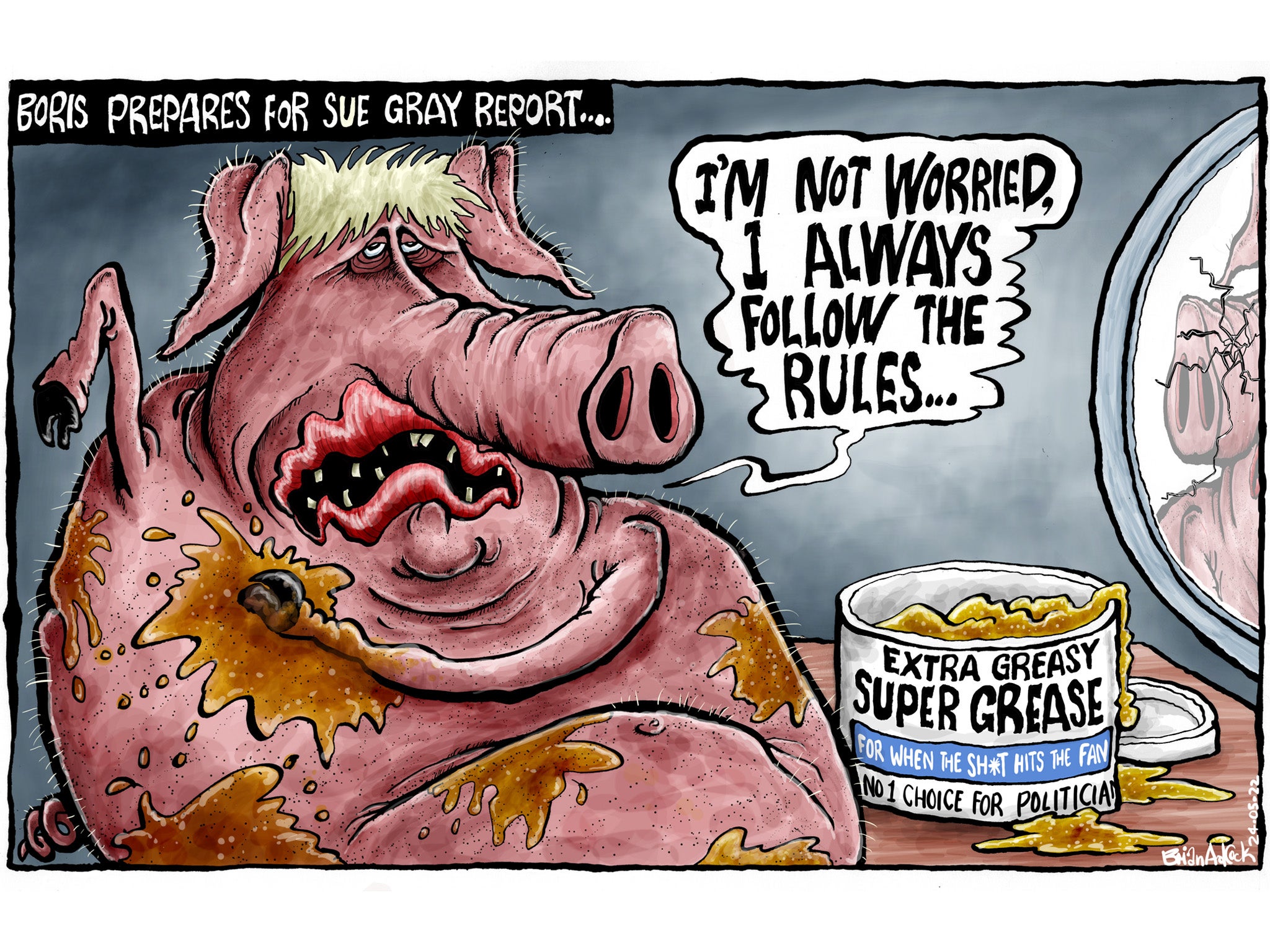At the usual conversion rate, four pictures are worth 4,000 words, and many more words than that will be expended before the furore over lockdown law-breaking in Downing Street dies down. The photographs of Boris Johnson raising a toast to mark the departure of Lee Cain, his deputy director of communications, are damning.
It does not look like the sort of gathering that is reasonably necessary for work, even though there must be some scope to argue that it was, because the Metropolitan Police have not issued Mr Johnson with a penalty notice for it.
The pictures tell their own story, however, which is that the prime minister and his staff had a party at a time when households were not allowed to mix indoors (except in specific circumstances) and when many people made great sacrifices to obey the laws passed by Mr Johnson and his government, supposedly for the benefit of all.
The photographs are proof that the prime minister doesn’t have a shred of honour, which would require him to apologise and resign; but that should have been his course of action when he received a penalty notice – for a different gathering – and admitted that he had broken the law.
Presumably Mr Johnson knew that these photographs and others like them were likely to be published, and has already calculated that if he adopts his hangdog expression and says that he understands people’s pain, and that he paused for only a few seconds to say a few words to rally the troops – who had been working very, very hard – he will get away with it again.
And he may well do. In the end, his survival as prime minister is in the hands of Conservative MPs, who are likely to conclude that now is not the right time to take a bold step into the unknown. The pictures are embarrassing, but among the thousands of words that they will generate will be enough legalistic cavilling and pedantry to keep an army of amateur lawyers busy for months.
There will be much textual analysis of Mr Johnson’s words in the House of Commons on 8 December last year, when he was asked by Catherine West, the Labour MP: “Can the prime minister tell the house whether there was a party in Downing Street on 13 November?”
He replied: “No, but I am sure that whatever happened, the guidance was followed and the rules were followed at all times.” Was that “No, there was no party”, or no, he could not tell the house? What does the “but” mean? At best, it can be said that the prime minister appeared to be choosing his words carefully, as if he knew perfectly well that some reasonable people might take the view that some of the after-work drinking in Downing Street, in which he had taken part, had broken the law.
To keep up to speed with all the latest opinions and comment, sign up to our free weekly Voices Dispatches newsletter by clicking here
The prime minister will no doubt say that the question of whether he knowingly misled parliament is for another day, and for the Commons committee of privileges to consider.
But there are two questions that need to be addressed immediately. One is that the Metropolitan Police must explain its decisions. Perhaps the imminent report by Sue Gray, the senior civil servant, will provide a fuller account of what actually happened in Downing Street during the coronavirus restrictions, but it will not explain why Mr Johnson avoided a penalty notice for the gathering at which the photos were taken while other people who attended were fined.
Nor is it clear, for example, why Rishi Sunak, the chancellor, received a penalty notice for turning up early for a meeting, when he appears to have been literally “ambushed with a cake”. The police must, in the interests of open justice, give a better account of why some people were penalised and others were not.
The other immediate question is for the parliamentary Conservative Party. When Ms Gray’s report is published – within the next few days, unless there are further legal problems – Conservative MPs will have another chance to ask themselves if Mr Johnson can change, or if they must make the change themselves.







Join our commenting forum
Join thought-provoking conversations, follow other Independent readers and see their replies
Comments